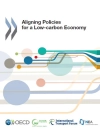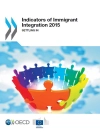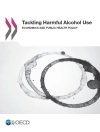The book considers the impact of COVID-19 on the GCC member states through the prism of challenges faced by their hydrocarbon sector. Yet, the publication’s discourse is not solely focused on the problems experienced by the oil and gas industries of the GCC member states after the beginning of the COVID pandemic. Instead, the contributors will analyze how these challenges and subsequent response to them affected other aspects of the GCC socio-economic and political development, from direct impact of the COVID on the energy sector of the GCC to socio-economic consequences of the oil market crisis for the region and its potential fallouts for the international relations of the Gulf.
Tabella dei contenuti
Part 1 Gulf Energy Sector and the COVID-19.- Chapter 1 GCC Oil Industry Response to the COVID-19 Challenge.- Chapter 2 Qatar LNG Industry in the post-COVID Period.- Chapter 3 Renewable Energy Prospects in the GCC in the Post-COVID era.- Part 2 Socio-Economic Dimensions of the Oil Market Crisis.- Chapter 4 Surviving Covid: The Economic Policy Response.- Chapter 5 The Covid-19 Pandemic and the Institutional Changes in the GCC.- Chapter 6 The GCC Sovereign Wealth Funds and the Oil Shock.- Chapter 7 Falling Oil Incomes and Migrant Communities of the GCC.- Chapter 8 Climate Change and the GCC: Economic and Environmental Impact.- Part 3 GCC International Relations during the Pandemic Times.- Chapter 9 Gulf Energy Security during the COVID-19 and after: From the Security of Supply to the Security of Demand.- Chapter 10 Iran, Saudi Arabia and the USA: Energy Security and Invested Interests.- Chapter 11 The Issue of the Global Oil Market Recovery and the future of the OPEC.
Circa l’autore
Nikolay Kozhanov is a Research Associate Professor at the Gulf Studies Center of Qatar University. He is also a Non-Resident Scholar at the Program on Economics and Energy at the Middle East Institute. His research interests are focused on the geopolitics of the Gulf hydrocarbons, Russian foreign policy in the Middle East as well as Iran’s economy and international relations.
Karen E. Young is a Senior Fellow and Director of the Program on Economics and Energy at the Middle East Institute. She was a resident scholar at the American Enterprise Institute (AEI), focused on the political economy of the Middle East and states of the Gulf Cooperation Council. She regularly teaches at the Foreign Service Institute at the US Department of State, and has taught at George Washington University and the Johns Hopkins School of Advanced International Studies.
Jalal Qanas is an assistant professor in the College of Businessand Economics at Qatar University. During 2013-2017, he was Teaching Assistant in Economics for Undergraduate and Postgraduate students at the University of Leeds. He also taught a summer course in the Economics of Brexit at Oxford University. Before joining Qatar University, Jalal was a Visiting Lecturer at the University of West London. Qanas’ research interests are mainly in macroeconomic policies, monetary economics, central banking and political economy of the Persian Gulf.












